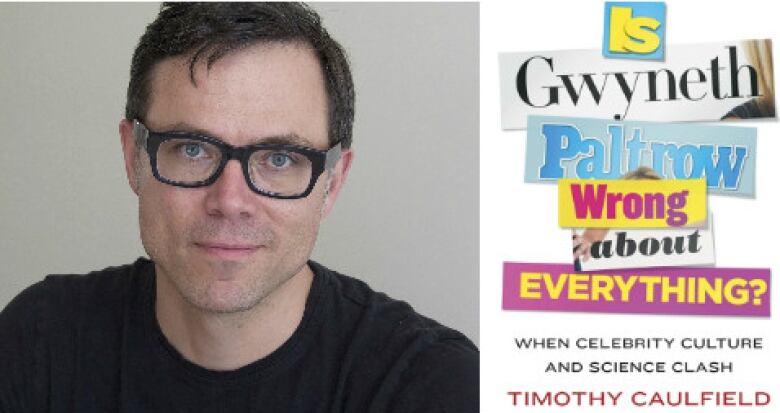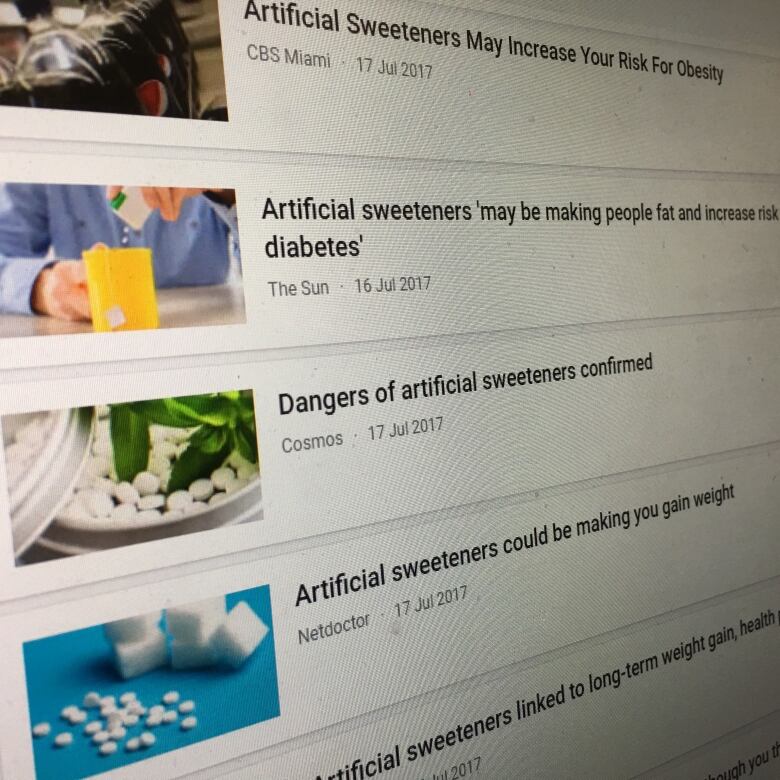SECOND OPINION | It's war! Debunkers take on Gwyneth Paltrow's GOOP and celebrity pseudoscience
War on GOOP breaks out into the open

Hello and happy Saturday! Here's this week's roundup of eclectic and under-the-radar health and medical science news.
If you haven't subscribed yet, you can do that by clicking here.
Goop is actor Gwyneth Paltrow's online lifestyle company, a "homespun weekly newsletter"that has grown into a lucrative alternative health enterprise, spawning an equally passionate anti-Goop movement. And now, the long-simmering Goop hostilities have broken out into a full scale war of words.
On one side there are the "debunkers," including Canadian gynecologist Jennifer Gunter, University of Alberta professor Timothy Caulfieldand comedian Stephen Colbert.
On the other side is Team Goop, including the actor, her team of alternative health care practitioners and legions of Goop followers.
"It's a fascinating public debate about celebrity pseudoscience," Caulfield told CBC Health.
Future historians will likely trace the origins of the great Goop war to so-called vagina stones. To improve their sexual health, Goop started selling egg-shaped jade stones for women to insert into their vaginas. (We told you about the vagina stones in our Jan.27 newsletter.)
Canadian gynecologist Jennifer Gunter, who practises in San Francisco, posted a letter to Paltrow calling the jade eggs "the biggest load of garbage I have read on your site since vaginal steaming."
Gunter went on to warn her readers that the porous stones could harbour bacteria creating a risk of a potentially fatal infection. Since then Gunter has challenged many of the alternative therapies on the Goop website, including their suggestion that bras cause breast cancer.

Last week, Goop fired back with a pointed letter criticizing Gunter of using profanity, dropping the F bomb, which she does occasionallyand insisting that Goop doesn't advise women to reject Western medicine. Goop also posted letters from two of its own doctors defending alternative approaches to health.
Gunter shot back with a systematic rebuttal of what she called Goop's "misogynistic, mansplaining hit job."
All week, the battle of Goop has been makinginternational headlines.
"This Canadian doctor is going head-to-head with Gwyneth Paltrow over Goop,"wrote the Toronto Star on Tuesday. Caulfield weighed in with "Sorry, Gwyneth Paltrow. Science will always beat Goopy junk." And then VOX asked: "Is Gwyneth Paltrow's pseudoscience winning?"
That last headline raises a good point, said Caulfield,who has written a Canadian best-selling critique of celebrity health culture called Is Gwyneth PaltrowWrong About Everything?
"They just want to create noise, and the more noise, the better," he said. "They don't care if it's positive noise or negative noise. The jade vagina eggs are still going to sell out. And that's what history tells us."
Still, Caulfield believes the war on Goop is important.
"I think setting the scientific record straight matters. It may not change people's minds tomorrow, but ensuring the facts are out there will make a difference long term," he said.
- Detox treatments by Dr. Oz and others lack evidence, benefit
- IV vitamin therapy: celebrities love it but 'no evidence' it works
"Some of the advice is straight up harmful. A lot of health trends like detoxing, cleansing, cryotherapy, IV therapy, I think those things wouldn't exist but for celebrity endorsement."
He said hisgroup has started to study that very question.
A 2nd look at the sweetener scare
It was a small Canadian review on the health effects of sugar substitutes, but it triggered a big international reaction. And the artificial sweetener industry was ready and waiting to fight back.
It all started when Meghan Azad at the University of Manitoba went through the scientific literature to see what research had been done on the health effects of artificial sweeteners.
- Why caution may be warranted when consuming artificial sweeteners
- Artificial sweeteners linked to obesity epidemic, scientists say
What she found was a series of limited studies suggesting regular use of sugar substitutes doesn't help people lose weight. She also concluded that artificial sugar "may be associated"with an increased risk of cardiometabolic disease although she warned those links have not been confirmed, and there is a risk of publication bias caused when studies that don't find harmfail to get published. She concluded that "further research is needed to fully characterize the long-term risks and benefits of non-nutritive sweeteners."
The fact that they're lobbying journalists, I don't know that people appreciate that.- Dr. Yoni Freedhoff
Despite the modest conclusion, the International Sweeteners Association released an official statement criticizing the review. And the makers of Splenda used a public relations firm to make a "proactive media pitch"offering journalists a chance to interview an expert they'd hired to offer "an alternate perspective on the safe consumption of sugar alternatives."
(Here at the CBC Health unit we received four separate emails from Weber Shandwick offering a "timely interview opportunity" with that expert. At first, they didn't disclose that they were representing a company that makes a sugar substitute. Later, after we asked, they told us their client was Heartland Food Products and saidthat their failure to disclose that"was an error on our part.")

"The fact that they're lobbying journalists, I don't know that people appreciate that," said Dr. Yoni Freedhoff. He's a clinician who treats obese patients. He was already shaking his head at the frenzy caused by the small study.
"We don't do a good job as a society critically appraising sources of information," he said.
Azad's review pointed out that many of the artificial sweetener studies were funded by industry. She also noted thatthe weight-loss effects were stronger in the clinical trials with industry sponsorship. But she told us she couldn't determine whether that influenced the results.
"Is it because possibly they're industry funded, or is it because they're the longest studies and that's where you see the best success?"
In the end, her small University of Manitoba paper created headlines around the world that claimed everything from "Fake sugars linked to obesity and heart disease" to "Dangers of artificial sweeteners confirmed."
That prompted Freedhoff to tweet this weary comment: "Sigh, a new sweetener scare."
"It's chasing minutia," he told us. "It's the big-ticket stuff that matters. It's cooking more from fresh whole ingredients, it's minimizing restaurants, it's not drinking your calories. It's having a good night's sleep and not smoking and not drinking too much alcohol. These are the things that we know will make a difference."
In the meantime, Health Canada and the Canadian Institutes of Health Research are spending $2 million to fund seven studies into the health effects of both sugar and artificial sweeteners including potential effects on the gut microbiome, an area of research prompted by an unusual observation in mice and humans that was widely reported back in 2014. Here's our coverage of that study from 2014. And our story from Monday.
Thanks for reading! You can email us any time with your thoughts or ideas.












_(720p).jpg)


 OFFICIAL HD MUSIC VIDEO.jpg)
.jpg)



























































































